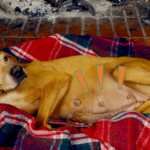Can Humans Get Kennel Cough From Dogs
Can Humans Get Kennel Cough from Dogs?
Kennel cough, also known as canine infectious tracheobronchitis, is a highly contagious respiratory disease that affects dogs. It is caused by a combination of bacteria and viruses, including the Bordetella bronchiseptica bacterium and the parainfluenza virus. While kennel cough is primarily a dog disease, many pet owners wonder whether they can contract it from their furry friends.
The short answer is yes; humans can get kennel cough from dogs. However, it’s not common, and the chances of transmission are relatively low. In this article, we’ll explore what kennel cough is, how it spreads between dogs and humans, and what you can do to protect yourself and your pets.
What is Kennel Cough?
As mentioned earlier, kennel cough is a respiratory disease that affects dogs. It causes inflammation of the upper airways, including the trachea (windpipe) and bronchi (air passages leading to the lungs). The most common symptoms of kennel cough include coughing, sneezing, nasal discharge, fever, lethargy, and loss of appetite.
Kennel cough is highly contagious among dogs and can spread quickly in places where many dogs congregate, such as boarding facilities, daycare centers, or dog parks. The disease spreads through airborne droplets when an infected dog coughs or sneezes or comes into contact with contaminated surfaces like food bowls or toys.
Can Humans Get Kennel Cough from Dogs?
While kennel cough primarily affects dogs, it can also infect other animals like cats and ferrets. In rare cases, humans can contract the disease from infected animals. However, it’s important to note that human-to-human transmission of kennel cough is even rarer.
To understand how humans can get kennel cough from dogs, let’s first look at how the disease spreads among dogs. When an infected dog coughs or sneezes, it releases small airborne droplets that contain the bacteria and viruses responsible for kennel cough. These droplets can travel several feet and remain suspended in the air for minutes or even hours.
If a human inhales these droplets, they can become infected with kennel cough. However, the chances of transmission are relatively low, especially if you have a healthy immune system. Children, the elderly, and people with weakened immune systems are more susceptible to contracting the disease.
Symptoms of Kennel Cough in Humans
If a human contracts kennel cough from a dog, they may experience symptoms similar to those seen in dogs. The most common symptoms include:
– Coughing
– Sneezing
– Runny nose
– Sore throat
– Fever
– Headache
– Fatigue
The symptoms usually appear within 3-10 days after exposure to the infected dog. While kennel cough is generally not life-threatening in humans, it can be uncomfortable and disruptive.
Preventing Kennel Cough Transmission
The best way to prevent kennel cough transmission is to vaccinate your dog against the disease. Kennel cough vaccines are readily available and highly effective at preventing infection. You should also avoid exposing your dog to other dogs who are sick or unvaccinated.
If you’re concerned about contracting kennel cough from your furry friend, there are several things you can do to reduce your risk. First, wash your hands frequently and thoroughly, especially after interacting with animals or visiting places where many dogs gather.
You should also avoid touching your face or mouth after petting an animal or handling their food bowls or toys. If you’re particularly concerned about exposure, you may want to wear a mask when around dogs or other animals.
Conclusion
While humans can contract kennel cough from dogs, it’s not common, and the chances of transmission are relatively low. The disease primarily affects dogs and other animals, and it’s highly contagious among them.
If you’re a pet owner, the best way to protect your furry friend from kennel cough is to vaccinate them against the disease and avoid exposing them to sick or unvaccinated dogs. If you’re concerned about contracting the disease yourself, practice good hygiene habits like washing your hands frequently and wearing a mask if necessary.
Remember, kennel cough is generally not life-threatening in humans, but it can be uncomfortable. By taking the necessary precautions, you can keep yourself and your pets healthy and happy.



